27-YO Borrows Rs 30K From Mom, Starts Organic Khadi Brand With Rs 50 Lakh Turnover!
Madhya Pradesh-based KhaDigi also experiments with other natural fibres like organic cotton, and waste from bamboo and soybean.
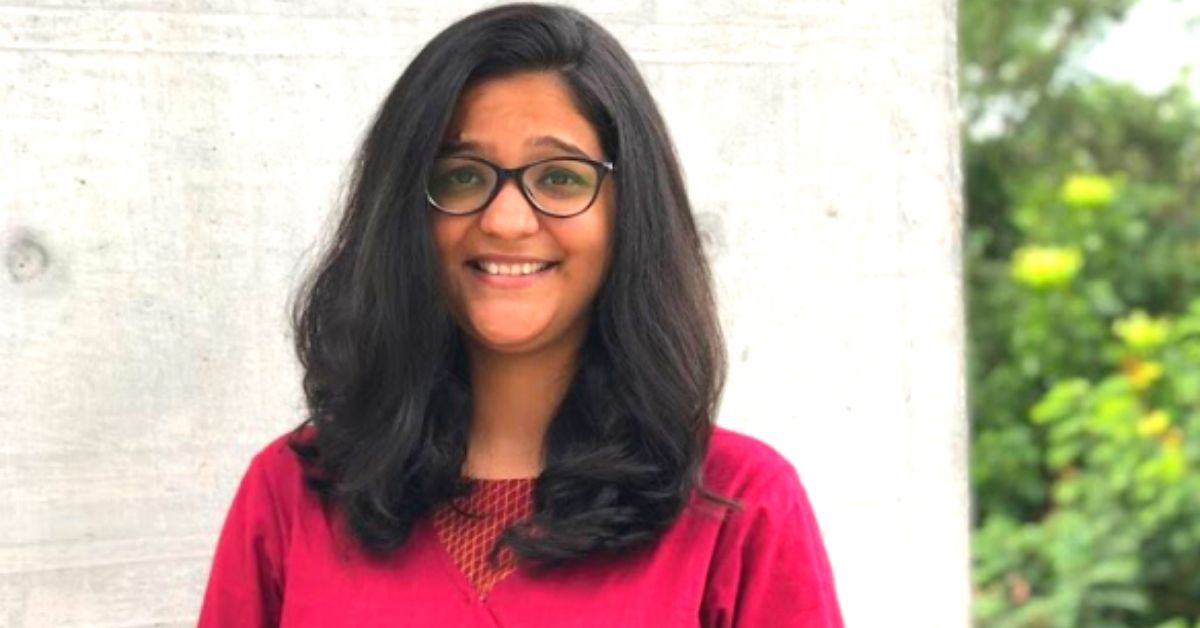
With The Positive Collective, The Better India’s COVID-19 coverage is available to regional language publications for free. Write to [email protected] for more details.
Khadi, which was a tool of economic empowerment during India’s freedom struggle, faded from the fashion scene with the coming of modern materials like silk and polyester. However, the humble hand-woven fabric is now fashioning itself into this new-age textile that is charming the millennial generation. Several designers in India and abroad are reinventing this versatile fabric to preserve the dying art and promote local weavers.
Bhopal-based KhaDigi, founded by Umang Shridhar, is one such social enterprise.
Since its inception three years ago, the organisation has been training local hand spinners, and handloom weavers from Madhya Pradesh, Maharashtra, and West Bengal to manufacture Khadi that is 100 per cent sustainable.
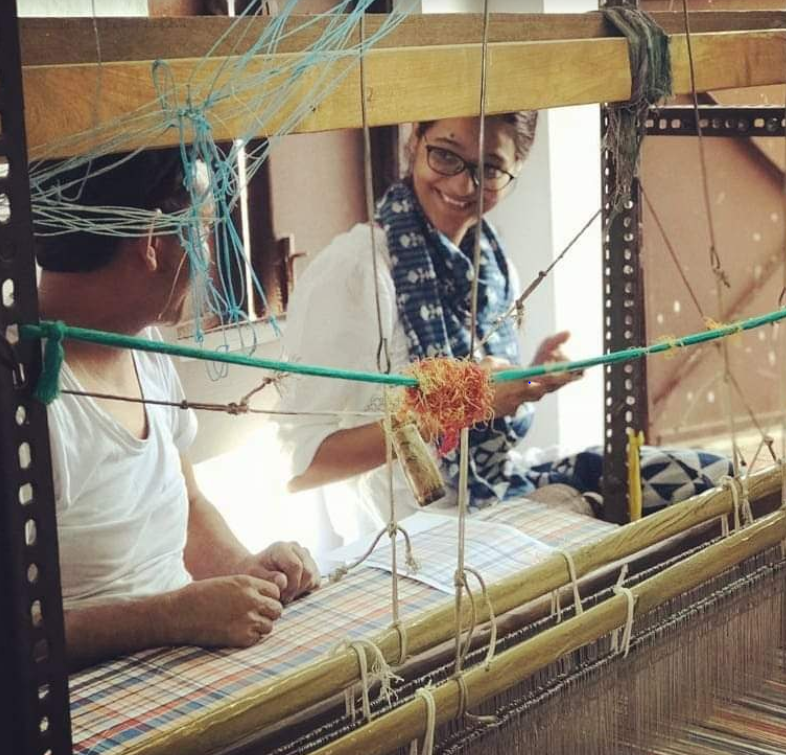
The B2B startup shares 60 per cent of its revenue with artisans. It is also going the extra mile for the environment by using natural fibres like organic cotton and waste from bamboo and soybean.
Sharing the vision of KhaDigi, Umang tells The Better India, “I grew up in the rural area of Bundelkhand, where I saw artisans suffering because India’s growth did not account for indigenous expertise. So, empowering them is our primary goal. Besides, khadi is a comfortable, cost-effective, and sustainable product. Who knew bringing back our quintessential Indian textile could have so many benefits?”
Another notable factor of this startup is the dominating presence of women.
From Umang’s mentor, investors, spinners and weavers, most of the stakeholders are women. In fact, the 27-year-old’s first investor was her mother!
“In the khadi world, cotton spinners are known as katin, which suggests the female gender. Technically, there is no word for male spinners. So, it was meant to be,” she adds.
Determined to bring a grassroots change, she is making a difference in the lives of 300 women artisans who are a part of the government-owned Khadi and Village Industries Commission (KVIC).
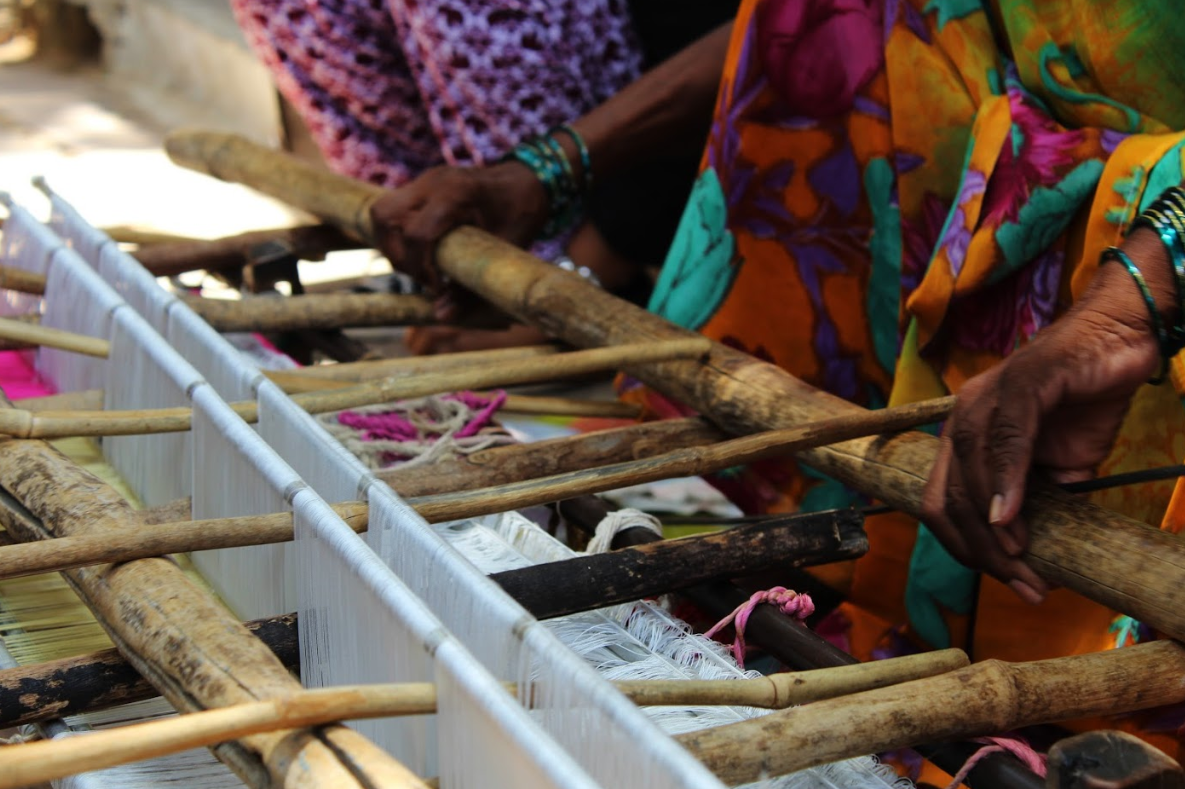
“We hire women who are a part of the KVIC programme. Spinners and weavers earn around Rs 6,000 and Rs 9,000 a month, respectively. However, the ones having experience and higher skills earn anything between Rs 25,000-30,000,” she adds.
When it comes to clients, she has a bagful of prominent ones, including big corporates like Reliance industries and the Aditya Birla Group. The organisation supplies fabrics and corporate gifts to designers, retailers, wholesalers, and industries.
Since its inception, the eco-conscious startup has produced and sold close to 50,000 metres of fabric. Last year, it recorded a revenue of Rs 50 lakh!
How It All Began
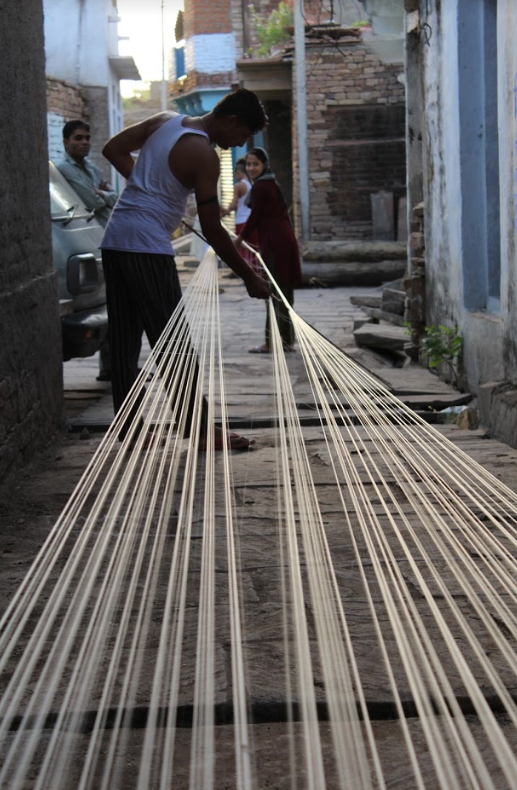
Born in a small village called Kishanganj in Bundelkhand’s Damoh region, Umang was always interested in the development sector.
Though she was given everything she asked for and was encouraged to be self-reliant, she couldn’t help but notice every-day social issues, especially caste-discrimination around her.
“Unfortunately, I was also part of this conservative society. It is strange that people are known not by their name, but their caste. Further, when I moved to Delhi for higher studies, I was shocked to see the visible difference between the rural and urban areas,” she recollects.
However, she also saw her parents stepping up to help the needy, “Entering the development sector was organic, I guess.”
Alongside her studies from Delhi University, Umang volunteered with multiple NGOs to understand and learn the ground realities. Choosing to work in Khadi by roping in women from rural areas seemed like a natural progression.
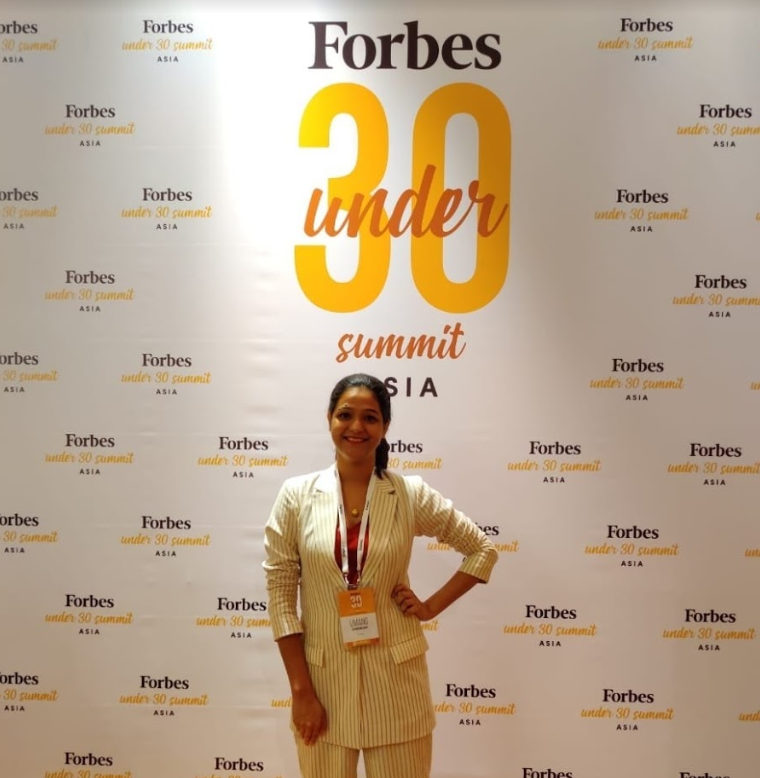
To expand her knowledge, she undertook a course in fashion designing and clothing technology at National Institute of Fashion Technology in Delhi in 2014.
She also did a fellowship from the School of Social Entrepreneurs India. It was here that Umang got the first-hand experience in designing a home collection using handlooms for a competition organised by the Ministry of Textiles. Winning the second prize was a validation of the idea of revolutionising Khadi and making it a popular product in India.
Umang spent the next two years in research and development, and officially launched KhaDigi in 2017 with an investment of Rs 30,000.
Over the years, she got a few more investors, including IIM-Ahmedabad and Bhopal-based AIC-Aartech. KhaDigi is currently incubated by Startup Oasis in Jaipur.
Scaling and Digitising Hand-spun Tales
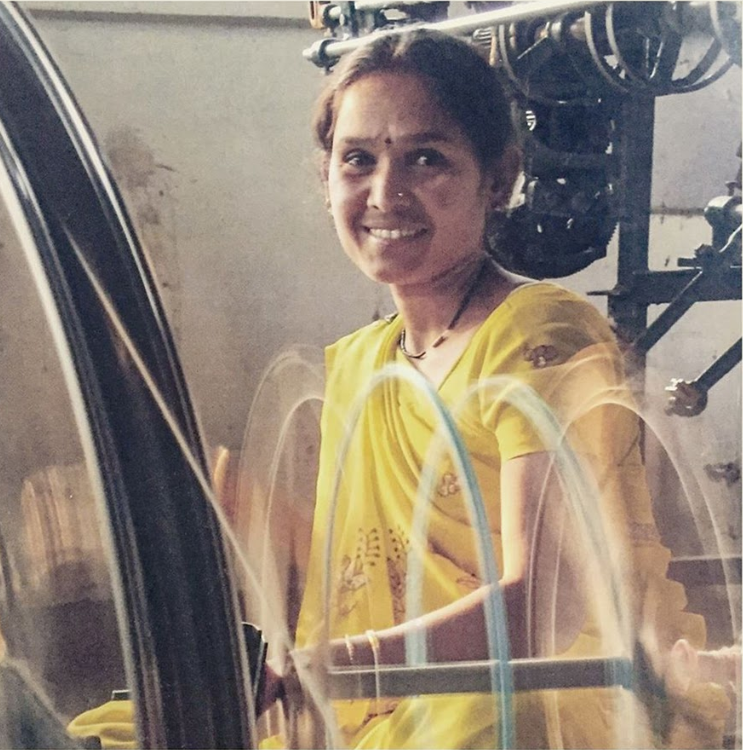
Umang named her startup KhaDigi by coining two terms – Khadi and Digital. The artisans follow the traditional style of making cloth, using a spinning wheel called ‘charkha’, but with a contemporary spin.
“We use digital printing techniques on Khadi fabric. For the same, we provide women with the necessary equipment, yarns, and designs. We hire them for ten months in a year, giving them a stable income,” informs Umang.
Though the rugged-textured Khadi is known for its seasonal comfort (keeping warm in summers and cool in winters) and the hand-spun techniques, entering the market was not easy.
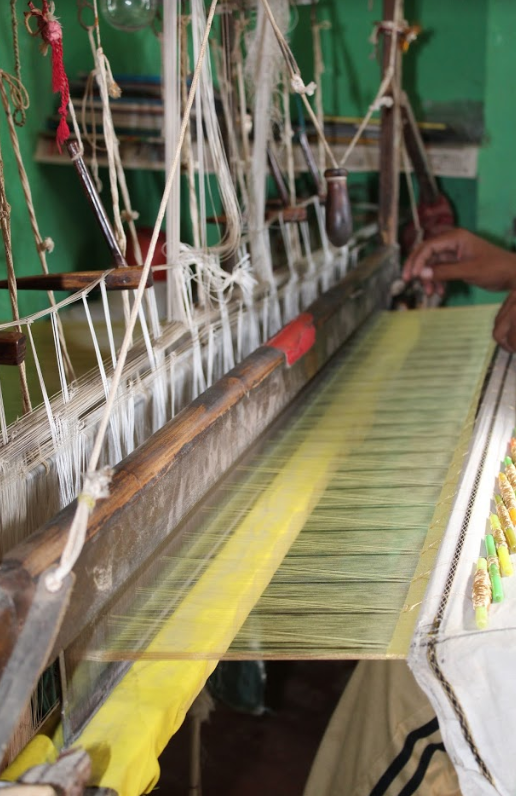
“Khadi has a very disorganised supply chain. My mentor Sarika Narayan and I took some time in decoding the market. Instead of branding ourselves as a clothing line, we identified it as a textile company that would make sustainable khadi fabrics.”
Rebranding did not lead to success overnight. But gradually, the clientele expanded from clothing store Aroka in Mumbai, apparel store Cotton Rack in Jaipur to fashion designers spread across Delhi, Jaipur, and Mumbai.
In 2018, Tanya Chugh, a business developer from Umang’s social circle, joined the company as a partner to further the business model, “She shifted to London this year, and we hope to make a breakthrough in international markets,” she says.
Once KhaDigi pocketed a steady clientele, the company started experimenting with 150 fabrics, including bamboo, soybean waste, mulberry silk yarn, and banana yarn to further champion the cause of sustainability.
The Way Forward
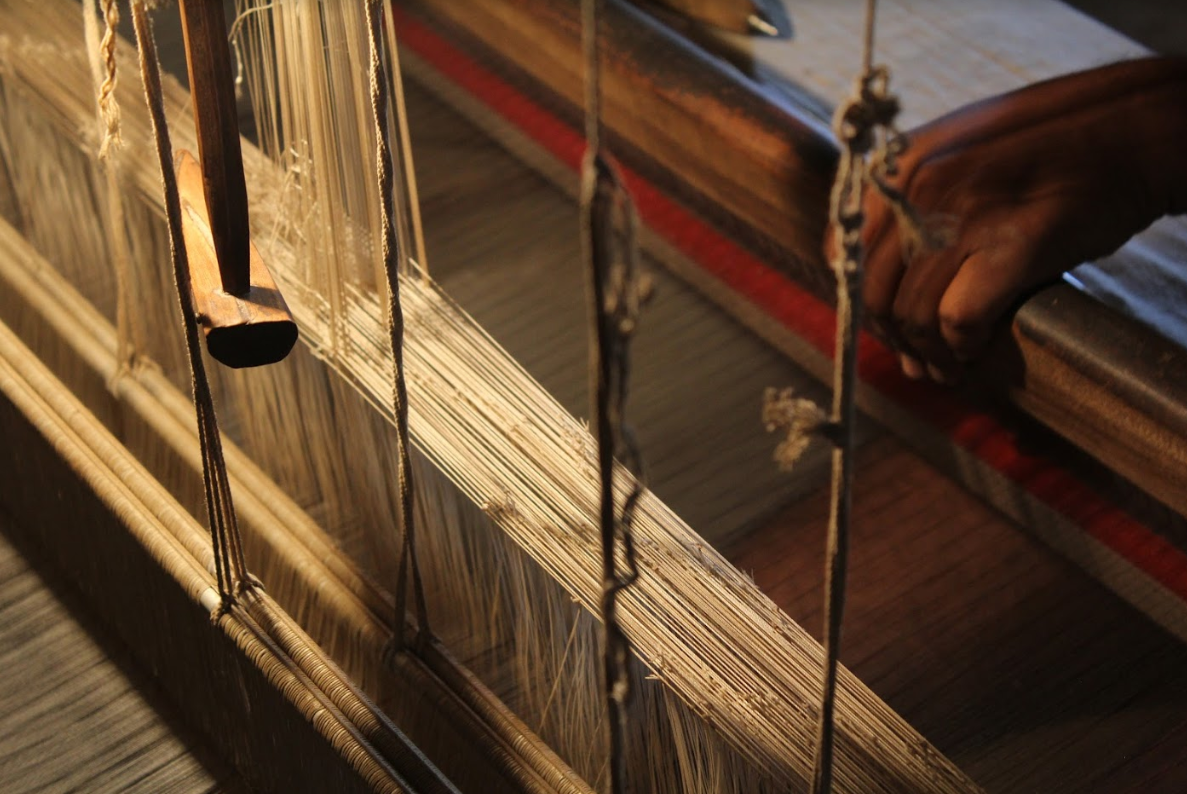
Owing to the lockdowns brought about by COVID-19, operations of several companies have been halted. Fortunately, KhaDigi’s fabric can be fashioned into different products. Banking on this, they are making protective gear like masks and gloves for the general public. So far, they have produced over one lakh masks.
“Prime Minister Narendra Modi has requested all of us to be vocal for local. So, we are using this opportunity to grow and make Khadi more consumer-centric. Thankfully, we have close to 5,000 metres of fabric woven by women in our warehouse. We have not let our revenues get affected,” shares Umang.
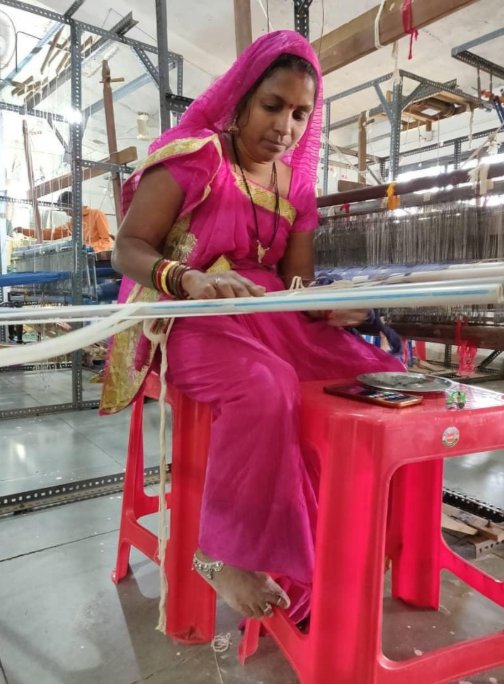
Post the lockdown, Umang and Tanya hope to improve their supply chain through technology by putting QR codes on every length of fabric. This will help the customer know the fabric’s origin. The startup is working on a B2C (business-to-customer) online model to stabilise its revenue system.
From dreaming of empowering rural women to touching hundreds of lives, from being a sceptical youngster to making it to Forbes’ 30-under-30 list, Umang has indeed come a long way.
(Edited by Shruti Singhal)
Like this story? Or have something to share?
Write to us: [email protected]
Connect with us on Facebook and Twitter.
If you found our stories insightful, informative, or even just enjoyable, we invite you to consider making a voluntary payment to support the work we do at The Better India. Your contribution helps us continue producing quality content that educates, inspires, and drives positive change.
Choose one of the payment options below for your contribution-
By paying for the stories you value, you directly contribute to sustaining our efforts focused on making a difference in the world. Together, let’s ensure that impactful stories continue to be told and shared, enriching lives and communities alike.
Thank you for your support. Here are some frequently asked questions you might find helpful to know why you are contributing?


This story made me
-
97
-
121
-
89
-
167













